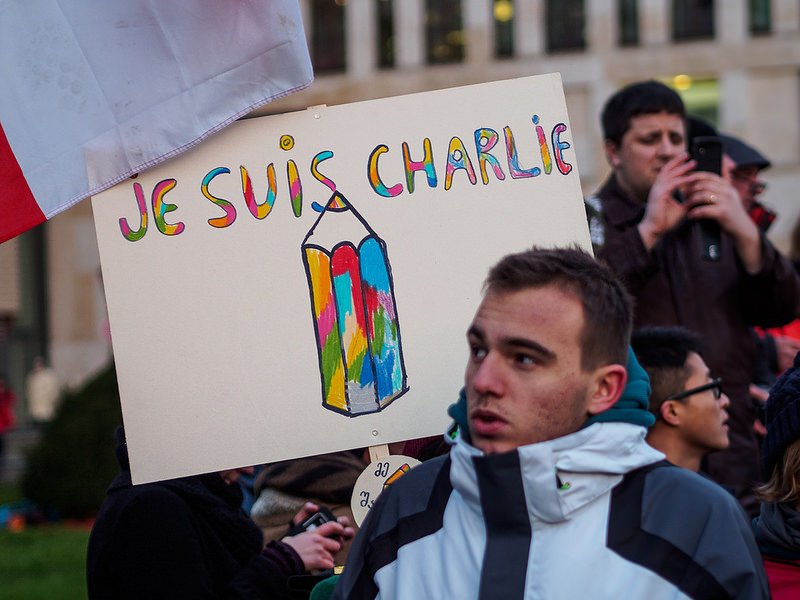| While we wave our Je suis Charlie banners in support of the French satirical newspaper Charlie Hebdo, we might want to consider our own level of commitment to the bedrock principles of free press and expression. Even in Utah, there is much room for improvement. A better banner might be Je suis un hypocrite. It is entirely appropriate that much of the world has rallied around the newspaper and those principles in defiance of the attackers. Like many, I don’t |
| | agree with Charlie Hebdo’s methods. That which religions consider sacred deserves a strong measure of respect, which is why religious freedom is another bedrock principle of liberty. But we cannot censure satire without also quashing important information and discussions that are necessary for truth to survive. As 17th century poet and author John Milton said, “Who ever knew truth put to the worst, in a free and open encounter?” Do we believe this? A headline in Tuesday’s Deseret News said, “Prosecutors dropping ‘ag-gag’ charges.” Iron County had originally charged four activists with violating state law for allegedly driving onto private property to take photos of a hog farm. They wanted to trace how a pig goes from the farm to a California slaughterhouse, and eventually onto the table of consumers. The activists claimed they stayed on public land, and that the photos were of buildings only. Regardless, the only charge they now face involves a trespassing misdemeanor. The law, however, remains on the books. It is officially illegal in Utah to conduct any undercover investigation of a slaughterhouse or factory farm. Other business are fair game. Never mind that it already is illegal to trespass, or that there are laws against libel. We must trust that the food we eat was properly prepared, and that overburdened inspectors are doing their job. Oh, and about that: A recent Inspector General’s report found that food safety might be compromised by inspectors having to work an average of 20 hours of overtime per week. This isn’t some law passed in 1906 when Upton Sinclair made waves with his expose of slaughterhouses in “The Jungle.” Utah lawmakers passed it in 2012. It was aimed squarely at activists such as those arrested in this case — people working for the Farm Animal Rights Movement, whose aim is to make everyone vegan. Just as Charlie Hebdo’s satire was often unfair or grossly exaggerated, if you outlaw its speech, you also outlaw a lot of other things that might be worthwhile for the public. Farm employees might see things that violate the law, for instance. But the law keeps them from documenting any evidence. This is only one example. Last fall, a feminist outspoken in her criticism of how video games portray women was forced to cancel a speech at Utah State University in the wake of death threats. An email threatened “the deadliest school shooting in American history” if she were allowed to speak. State law specifically prohibits state universities from banning firearms, so it was impossible to ban weapons in the room where the speech would take place. People may quibble over limits on the right to carry guns, but the speaker’s request for a ban, in light of the email, was not unreasonable. Whether it was lawmakers’ intent or not when passing the law, it suppressed speech and provided a victory for a criminal. As another legislative session begins this month, it’s a safe bet someone will suggest a law that weakens expression or the public’s right to know in some regard. It happens just about every year. Utah is not the worst offender. Much of the time, lawmakers here uphold rights. The same can’t be said of Washington. The Obama administration has a dismal record on press freedom ranging from its relentless bullying to get reporters to testify against sources to the electronic eavesdropping on the Associated Press. Sure, none of these abuses rises to the level of terrorists slaughtering people who publish things they don’t like. But if we truly stand behind the Charlie Hebdo victims and their rights, we cannot do so halfway or agree only when murder is involved. We must do it because we understand the vital principles of liberty that are at stake. |


 RSS Feed
RSS Feed

